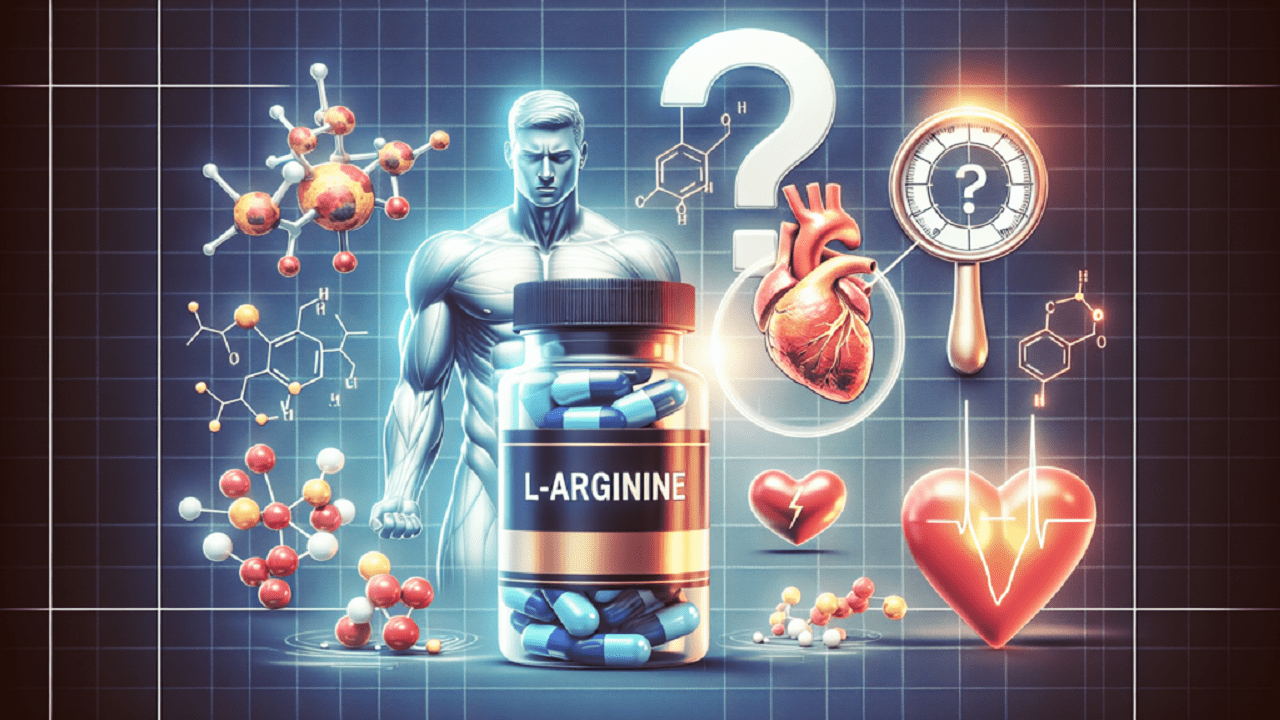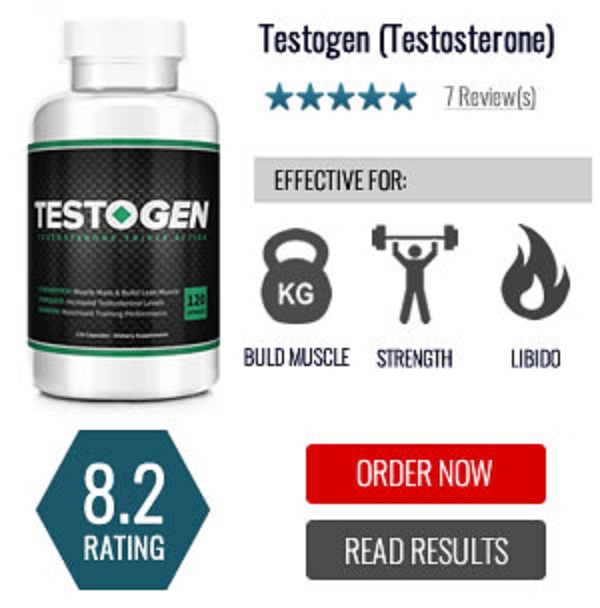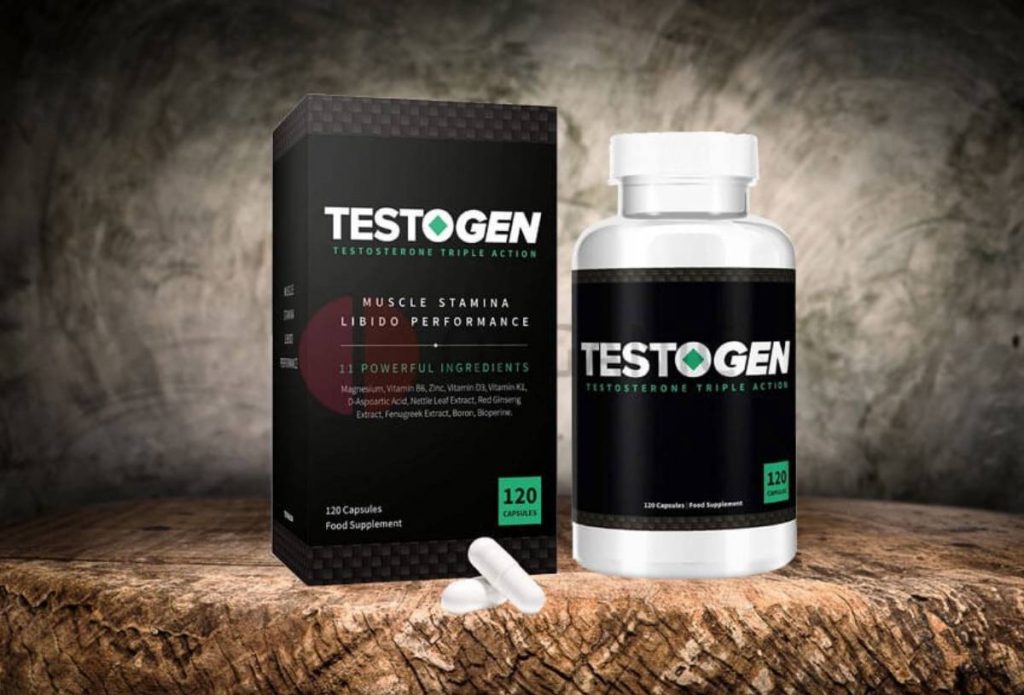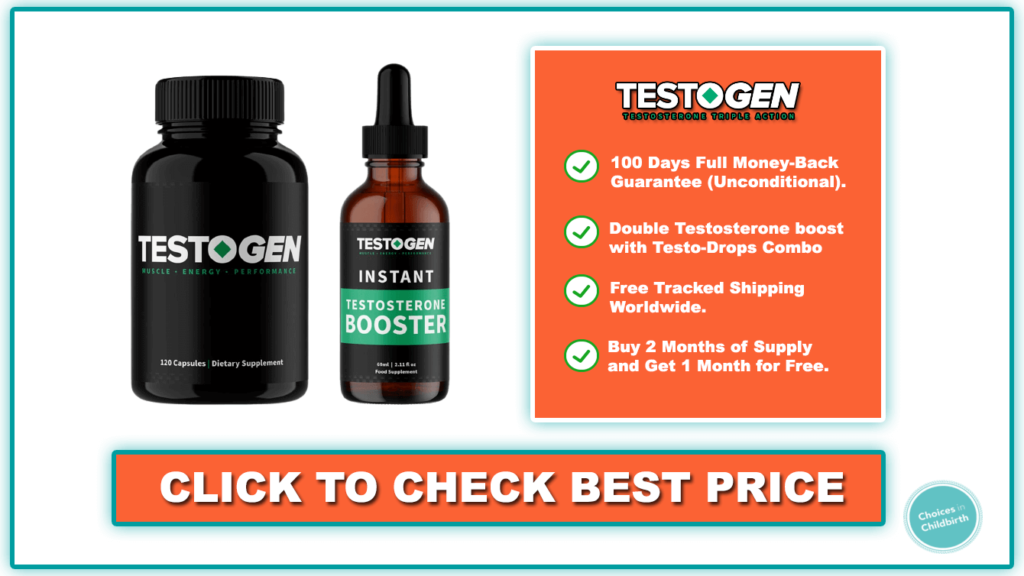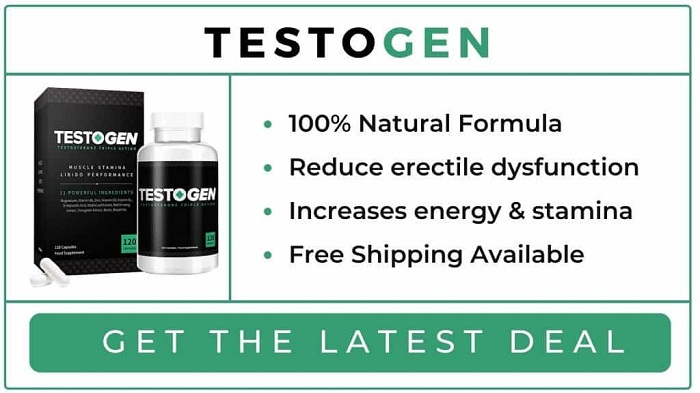Does L-Arginine Increase Testosterone?
Contents
- 1 Does L-Arginine Increase Testosterone?
- 2 The Crucial Role of Testosterone
- 3 L-Arginine and Testosterone: Unraveling the Connection
- 4 Factors Influencing Testosterone Levels
- 5 Considerations Before Using L-Arginine Supplements
- 6 Practical Insights and Lifestyle Tips
- 7 Emerging Research and Future Perspectives
- 8 Conclusion
- 9 FAQs
- 10 What is L-Arginine?
- 11 How does L-Arginine relate to Testosterone?
- 12 Does L-Arginine directly increase Testosterone levels?
- 13 What are the potential mechanisms behind L-Arginine’s impact on Testosterone?
- 14 Are there scientific studies supporting the claim that L-Arginine increases Testosterone?
- 15 Are there conflicting findings in the research on L-Arginine and Testosterone?
- 16 Should I consider L-Arginine supplementation to boost Testosterone?
- 17 What are the potential side effects of L-Arginine supplementation?
- 18 Can L-Arginine offer benefits beyond influencing Testosterone?
- 19 Is there a recommended dosage of L-Arginine for potential Testosterone benefits?
In the vast realm of health and wellness, the quest for optimizing hormonal health has become a central focus for many individuals. Among the myriad of dietary supplements, L-arginine has risen to prominence for its potential influence on testosterone levels. This extensive guide aims to unravel the mystery surrounding a common inquiry: Does L-arginine increase testosterone levels? By scrutinizing scientific evidence, exploring holistic approaches to hormonal well-being, providing practical lifestyle insights, and delving into the nuanced intricacies of L-Arginine’s impact on testosterone, we aim to empower readers with a comprehensive understanding of this intriguing interplay.
Related Post: Does Shilajit Increase Testosterone Levels? | Unlocking the Mysteries Behind Shilajit and Testosterone
The Crucial Role of Testosterone
Understanding Testosterone
Testosterone, often hailed as the primary male sex hormone, is equally crucial in the female body, influencing a wide array of physiological functions. Beyond its well-known role in muscle development and bone density, testosterone exerts its influence on energy levels, mood regulation, cognitive function, and overall vitality. This foundational understanding is crucial as we explore the potential effects of L-Arginine on this multifaceted hormone.
Hormonal Harmony: A Delicate Balance
The hormonal symphony within the body involves a delicate equilibrium influenced by numerous factors. Age, genetics, lifestyle choices, and overall health intricately interplay to determine hormonal levels. Recognizing the complexity of this system is paramount when considering interventions like L-arginine supplementation.
L-Arginine and Testosterone: Unraveling the Connection

The Hypothesized Mechanism
At the core of the proposed link between L-Arginine and increased testosterone lies its role as a precursor to nitric oxide (NO). Nitric oxide, known for its vasodilatory properties, enhances blood flow throughout the body. The hypothesis suggests that the improved blood flow facilitated by NO may positively influence testosterone production. In this section, we embark on an in-depth exploration of this intricate biochemical pathway, shedding light on the potential mechanisms at play.
Nitric oxide, derived from L-Arginine, serves as a signaling molecule that impacts vascular function. One proposed mechanism is that increased nitric oxide levels could enhance blood flow to the testes, where testosterone is primarily produced. This improved circulation may theoretically create an environment conducive to higher testosterone synthesis.
Studies and Research
To navigate the labyrinth of conflicting claims and hypotheses, a meticulous examination of existing studies and research on L-Arginine’s impact on testosterone levels is imperative. We scrutinize methodologies, participant demographics, and the diversity of outcomes to provide a comprehensive overview. Understanding the scientific landscape is essential in discerning the credibility and reliability of claims surrounding L-Arginine’s testosterone-boosting potential.
Several studies have explored the potential link between L-arginine and testosterone. A study published in the “International Journal of Endocrinology” investigated the effects of L-arginine supplementation on male infertility. While the study focused on sperm quality, it did note a significant increase in testosterone levels among participants. However, the sample size and specific population characteristics warrant careful consideration.
Another study, published in the “Journal of Strength and Conditioning Research,” explored the impact of L-Arginine supplementation on resistance-trained males. This study found no significant changes in testosterone levels after eight weeks of supplementation. The conflicting nature of these findings underscores the need for a nuanced perspective.
Conflicting Findings: Navigating the Scientific Landscape
The scientific community’s diverse findings necessitate a deeper understanding of potential variables contributing to this variation. Dosage, duration of supplementation, and the specific population under study are among the factors explored in this section. By unraveling these intricacies, we aim to offer a nuanced perspective on the current state of knowledge.
Dosage and duration are crucial determinants in evaluating the impact of L-arginine on testosterone. Some studies have used higher doses, while others have opted for lower amounts. Additionally, variations in the duration of supplementation, ranging from a few weeks to several months, contribute to the conflicting outcomes.
The specific population under study introduces another layer of complexity. Factors such as age, health status, and baseline testosterone levels can influence the response to L-arginine supplementation. Young, healthy individuals may respond differently than older adults or those with existing health conditions.
Factors Influencing Testosterone Levels

A Holistic Approach to Hormonal Health
Acknowledging that hormonal optimization is a multifaceted endeavor, we explore various factors influencing testosterone production. Lifestyle choices, including diet, exercise, sleep, and stress management, are interconnected contributors. This holistic perspective empowers readers to adopt a comprehensive strategy for hormonal well-being.
Dietary Choices and Lifestyle Habits
Beyond the realm of supplementation, we delve into the pivotal role of dietary choices and lifestyle habits in influencing testosterone levels. A balanced diet rich in essential nutrients, coupled with regular exercise and sufficient sleep, forms the cornerstone of fostering overall hormonal well-being. The synergistic effect of these factors on testosterone production underscores the importance of adopting a holistic lifestyle approach.
The Impact of Sleep on Hormonal Balance
Quality sleep is often an overlooked but critical factor in maintaining hormonal balance, including testosterone levels. In this section, we explore the intricate relationship between sleep and testosterone, discussing the optimal duration and quality of sleep required for supporting hormonal health.
Sleep serves as a crucial regulator of hormonal function, and disruptions in sleep patterns can have profound effects on testosterone levels. Research suggests that both the duration and quality of sleep play pivotal roles in maintaining optimal hormonal balance.
Adequate sleep duration is essential for hormone production, with testosterone levels typically peaking during the early morning hours. Chronic sleep deprivation, characterized by consistently inadequate sleep, has been linked to lower testosterone levels. This emphasizes the importance of prioritizing sufficient and consistent sleep for those seeking to optimize testosterone.
Sleep quality is equally significant, with disruptions in sleep patterns, such as sleep apnea or insomnia, potentially impacting hormonal balance. Addressing sleep-related issues through lifestyle modifications or medical interventions may contribute to overall hormonal well-being.
Considerations Before Using L-Arginine Supplements
Potential Benefits Beyond Testosterone
While L-arginine is often scrutinized for its impact on testosterone, it’s essential to recognize the broader spectrum of health benefits it offers. Beyond its hypothesized impact on testosterone, L-Arginine is known for its potential to improve cardiovascular health, enhance exercise performance, and aid in immune system support. Providing a comprehensive view of these advantages enables readers to make informed decisions about incorporating L-Arginine into their health regimen.
L-arginine’s role extends beyond its potential influence on testosterone. As a precursor to nitric oxide, it contributes to the dilation of blood vessels, promoting improved blood flow. This vasodilatory effect has implications for cardiovascular health, potentially aiding in conditions such as hypertension or endothelial dysfunction.
Additionally, L-Arginine’s involvement in nitric oxide synthesis may enhance exercise performance. Improved blood flow and nutrient delivery to muscles could contribute to better endurance and recovery. Athletes and fitness enthusiasts may find L-arginine supplementation beneficial for optimizing their overall exercise performance.
Precautions, Interactions, and Possible Side Effects
While generally regarded as safe, L-Arginine supplementation may have potential side effects and interactions with medications. This section delves into the precautions associated with L-Arginine use, offering a nuanced understanding of potential risks and emphasizing the importance of consulting healthcare professionals before integrating L-Arginine into one’s regimen.
L-arginine supplementation is generally considered safe when used within recommended doses. However, like any supplement, it may not be suitable for everyone. Individuals with certain medical conditions, such as herpes or those prone to cold sores, should exercise caution, as L-Arginine can potentially exacerbate these conditions.
Interactions with medications, particularly those affecting blood pressure, should be considered. L-Arginine’s vasodilatory effects may enhance the effects of antihypertensive drugs, leading to excessively low blood pressure. It is crucial for individuals taking medications to consult with healthcare professionals before initiating L-arginine supplementation.
Potential side effects of L-arginine include gastrointestinal discomfort, such as nausea or diarrhea, particularly at higher doses. Monitoring for these side effects and adjusting the dosage accordingly can help minimize discomfort.
Dosage and Timing Considerations
Optimal dosage and timing are crucial considerations when supplementing with L-arginine. We explore recommended dosages based on available research, considering factors such as individual variability and specific health goals. The timing of supplementation is also discussed, addressing whether the temporal aspects may influence its potential effects on testosterone levels.
Determining the appropriate dosage of L-arginine involves considering various factors, including the specific health goal, individual characteristics, and potential interactions with other supplements or medications. Dosages in research studies have varied, with some using higher amounts (e.g., 3-5 grams per day) and others opting for lower doses.
The timing of L-arginine supplementation may also influence its potential effects. Some studies have administered L-Arginine before exercise sessions to capitalize on its vasodilatory effects and potentially enhance blood flow to working muscles. Other research has explored consistent daily supplementation to maintain a sustained increase in nitric oxide levels.
Individual responses to L-Arginine can vary, and it may be beneficial to start with lower doses and gradually increase while monitoring for any side effects. Consulting with healthcare professionals or nutrition experts can provide personalized guidance on dosage and timing based on individual health status and goals.
Practical Insights and Lifestyle Tips
Dietary Strategies for Hormonal Health
In addition to L-Arginine supplementation, adopting specific dietary strategies can positively impact hormonal health. We delve into the role of macronutrients, micronutrients, and specific food choices that contribute to a well-rounded approach to supporting hormonal balance.
A balanced and nutrient-rich diet plays a pivotal role in supporting overall hormonal health, including testosterone levels. Essential nutrients such as zinc, vitamin D, and omega-3 fatty acids are particularly important for testosterone synthesis.
Zinc, found in foods like oysters, beef, and pumpkin seeds, is a critical mineral for testosterone production. Ensuring an adequate intake of zinc through dietary sources or supplementation may contribute to optimal hormonal balance.
Vitamin D, obtained from sunlight exposure and dietary sources like fatty fish and fortified foods, is essential for testosterone synthesis. Individuals with inadequate sun exposure may benefit from vitamin D supplements, particularly in regions with limited sunlight.
Omega-3 fatty acids, found in fatty fish, flaxseeds, and walnuts, have anti-inflammatory properties and may positively influence hormonal balance. Including sources of omega-3s in the diet supports overall health and may indirectly contribute to optimal testosterone levels.
Exercise Regimens for Hormonal Optimization
Physical activity is intricately linked to hormonal health. We explore exercise regimens associated with positive effects on testosterone levels, highlighting the importance of both aerobic and resistance training for comprehensive well-being. This section provides practical tips on tailoring exercise routines to individual needs and goals.
Exercise, particularly resistance training, has been shown to have a positive impact on testosterone levels. Engaging in regular strength training exercises, such as weightlifting or bodyweight exercises, can stimulate testosterone synthesis.
Compound exercises that target multiple muscle groups, such as squats and deadlifts, are particularly effective in eliciting a hormonal response. These exercises engage large muscle groups, promoting a systemic release of hormones, including testosterone.
While resistance training is crucial, incorporating aerobic exercises like jogging or cycling also contributes to overall hormonal balance. High-intensity interval training (HIIT) has gained popularity for its potential to enhance cardiovascular health and metabolic function, which may indirectly influence testosterone levels.
Stress Management Techniques
Chronic stress can adversely affect hormone levels, including testosterone. This section provides practical insights into stress management techniques, including mindfulness, meditation, and other relaxation strategies that contribute to a more balanced hormonal milieu.
Stress management is integral to hormonal optimization, as chronic stress can lead to elevated cortisol levels, potentially impacting testosterone synthesis. Incorporating stress-reducing practices into daily life can contribute to overall well-being.
Mindfulness meditation, deep breathing exercises, and yoga are effective stress management techniques that promote relaxation and mitigate the physiological responses to stress. These practices can be incorporated into daily routines to foster a more balanced hormonal environment.
Engaging in hobbies, spending time in nature, and maintaining social connections also contribute to stress reduction. Finding activities that bring joy and relaxation is essential for overall mental and hormonal health.
Emerging Research and Future Perspectives

Ongoing Studies and Areas of Interest
The field of hormonal regulation and supplementation is dynamic, with ongoing research continually shaping our understanding. We explore current studies and areas of interest related to L-Arginine and testosterone, shedding light on potential future developments in this intriguing field.
Ongoing research endeavors are focusing on refining our understanding of L-Arginine’s impact on testosterone and hormonal health. Exploring different populations, refining dosages, and employing advanced research methodologies contribute to the evolving landscape of scientific knowledge in this area.
Researchers are delving into the potential synergistic effects of combining L-Arginine with other compounds or nutrients that influence hormonal balance. Complementary approaches may enhance the overall efficacy of interventions aimed at optimizing testosterone levels.
Personalized Approaches to Hormonal Health
Recognizing the individuality of hormonal balance, we discuss the potential for personalized approaches to hormonal health. Factors such as genetic predispositions, unique physiological characteristics, and personal responses to interventions may influence how individuals respond to L-arginine supplementation and other strategies for hormonal optimization.
Personalized approaches consider individual variability in genetics, lifestyle, and health status. Genetic predispositions can play a role in how individuals metabolize and respond to nutrients, including L-arginine. Genetic testing and personalized nutrition plans may provide tailored insights into optimizing hormonal health based on an individual’s unique genetic makeup.
Understanding individual physiological characteristics is crucial in designing effective interventions. Factors such as baseline hormone levels, existing health conditions, and metabolic rate contribute to the nuanced nature of hormonal responses. Tailoring interventions based on these individual factors allows for a more precise and targeted approach to hormonal optimization.
Monitoring personal responses to interventions is essential for refining and adapting strategies over time. Regular assessments of hormone levels, overall health, and well-being provide valuable feedback on the effectiveness of interventions. This iterative process allows individuals to make informed adjustments, ensuring that the chosen approach aligns with their evolving health goals.
Conclusion
In conclusion, the question of whether L-Arginine authentically increases testosterone levels is multifaceted and requires a nuanced interpretation of the available scientific evidence. While certain studies suggest a potential positive impact, the conflicting nature of findings underscores the complexity of hormonal regulation.
Individuals aspiring to optimize testosterone levels should approach L-Arginine as part of a broader strategy, incorporating a balanced diet, regular exercise, stress management, and other lifestyle factors. Consultation with healthcare professionals is paramount to ensure that any supplementation aligns with individual health goals and needs.
Moreover, adopting a holistic approach to hormonal health is fundamental. The interconnectedness of lifestyle choices, including diet, exercise, sleep, and stress management, plays a pivotal role in maintaining hormonal balance. Recognizing that hormonal optimization is not a one-size-fits-all endeavor, this guide encourages individuals to embrace personalized approaches tailored to their unique characteristics.
As scientific research evolves, staying informed remains pivotal for making sound decisions on the path to hormonal optimization. Emerging research and ongoing studies contribute to the growing body of knowledge, offering new insights and potential breakthroughs in understanding how L-Arginine and other interventions impact testosterone levels.
Ultimately, the journey to hormonal health is dynamic and multifaceted. This comprehensive guide aims to empower individuals with in-depth information, fostering an informed and proactive approach to well-being beyond the allure of isolated supplements. The integration of scientific evidence, practical insights, and a focus on personalized approaches equips readers with the tools to navigate the complexities of hormonal optimization.
As we navigate the intricate terrain of hormonal health, it’s crucial to view L-Arginine as one component in a holistic mosaic of lifestyle choices. By fostering a comprehensive understanding of the factors influencing testosterone levels and embracing personalized strategies, individuals can embark on a journey towards balanced hormonal well-being.
FAQs
Certainly! Here are some frequently asked questions (FAQs) on the topic “Does L-Arginine Increase Testosterone?”
What is L-Arginine?
L-Arginine is an amino acid that serves as a precursor to nitric oxide in the body. It plays a role in various physiological functions, including blood vessel dilation and immune system support.
How does L-Arginine relate to Testosterone?
L-Arginine’s connection to testosterone lies in its role as a precursor to nitric oxide. Some theories suggest that improved blood flow facilitated by nitric oxide might positively influence testosterone production.
Does L-Arginine directly increase Testosterone levels?
The relationship between L-Arginine and testosterone is complex. While some studies suggest a potential positive impact, the scientific community has not reached a unanimous conclusion. Further research is needed to establish a direct causal relationship.
What are the potential mechanisms behind L-Arginine’s impact on Testosterone?
One proposed mechanism is that the vasodilatory effects of nitric oxide, derived from L-Arginine, may enhance blood flow to the testes, potentially creating an environment conducive to higher testosterone synthesis.
Are there scientific studies supporting the claim that L-Arginine increases Testosterone?
Yes, some studies have explored the impact of L-Arginine supplementation on testosterone levels. However, findings are not consistent, and the scientific community acknowledges the need for further investigation.
Are there conflicting findings in the research on L-Arginine and Testosterone?
Yes, there are conflicting findings in studies examining the relationship between L-Arginine and testosterone. Factors such as dosage, duration of supplementation, and the specific population under study contribute to this variability.
Should I consider L-Arginine supplementation to boost Testosterone?
The decision to use L-Arginine supplements should be approached cautiously. While some individuals may experience benefits, it’s crucial to consider individual health status, potential side effects, and consult with healthcare professionals.
What are the potential side effects of L-Arginine supplementation?
L-Arginine is generally regarded as safe when used appropriately. However, higher doses may lead to gastrointestinal discomfort such as nausea or diarrhea. Individuals with certain health conditions should exercise caution.
Can L-Arginine offer benefits beyond influencing Testosterone?
Yes, L-Arginine is known for its potential benefits, including improved cardiovascular health, enhanced exercise performance, and immune system support. Considering these potential advantages is essential when evaluating its overall impact on health.
Is there a recommended dosage of L-Arginine for potential Testosterone benefits?
The optimal dosage of L-Arginine can vary, and there is no one-size-fits-all recommendation. Dosages used in research studies have ranged from lower to higher amounts. It’s advisable to start with lower doses and consult with healthcare professionals for personalized guidance.
These FAQs provide a starting point for individuals seeking information on the relationship between L-Arginine and testosterone. It’s essential to stay informed and consult with healthcare professionals for personalized advice based on individual health conditions and goals.
